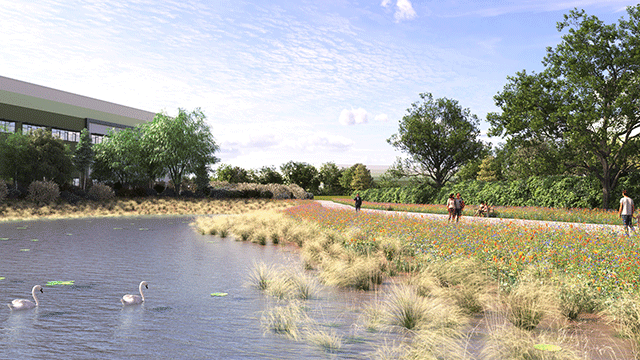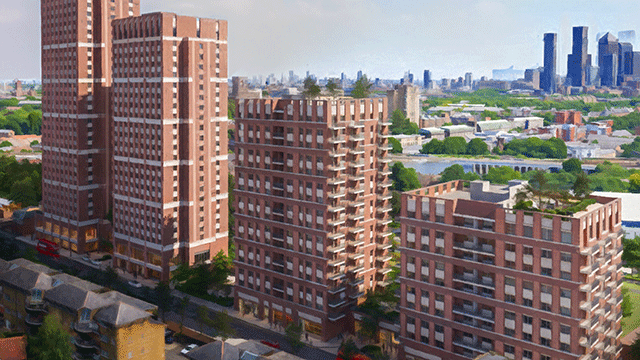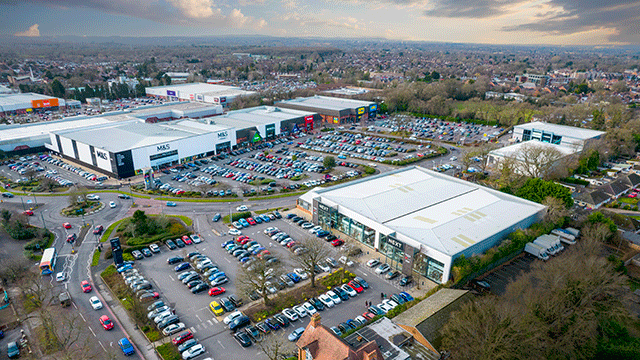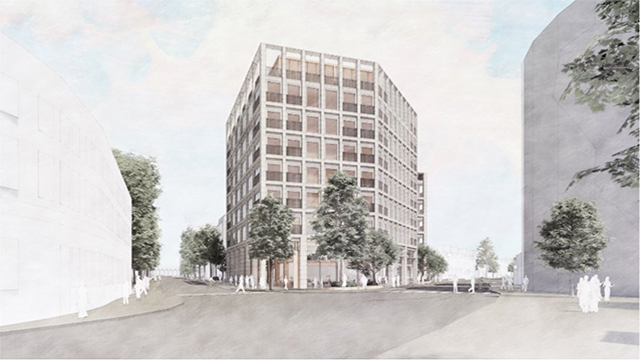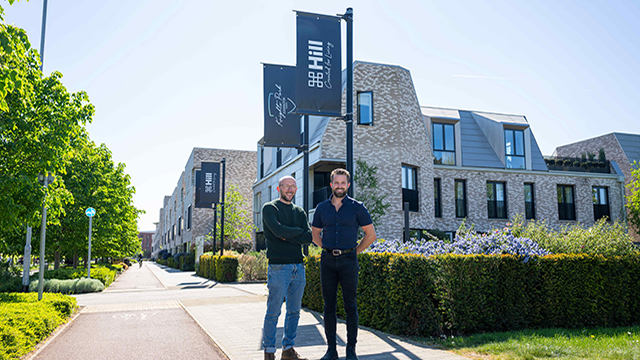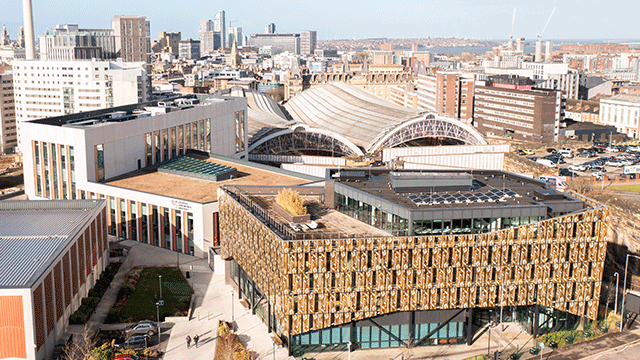The international spotlight is on Birmingham, as it hosts the 1998 G8 summit and other major conventions. But it still faces problems in attracting investment. Lawrence Higgins reports.
Birmingham is preparing to become a member of what the US ambassador to Britain calls “the world’s most exclusive club”. On May 15, leaders from the eight most powerful countries will converge on the city for the 1998 G8 conference. For a week, the city’s International Convention Centre (ICC) will be in the global spotlight.
The summit will attract 1,000 delegates, and 3,000 journalists will report their every utterance to news programmes and papers around the world.
Each one of those reports will begin: “The Birmingham G8 conferenceÉ”
Richard Green, the city council’s director of economic development, calls the summit “the Olympics of world politics”.
The G8 is the pinnacle of a year that has seen Birmingham gain more worldwide recognition than it has probably ever achieved in its 109 years as a city. This weekend has also seen Birmingham’s National Indoor Arena play host to what is one of Europe’s most derided annual television events, The Eurovision Song Contest.
But while the city has endured endless “Boom Bang A Bang” songs and Terry Wogan’s amiable swipes at the event, the contest does, nevertheless, attract 300m viewers.
The icing on the cake will come at the end of June when 25,000 business people from around the world, along with thousands of their guests, will be in the city to attend the Lions Club International Convention.
The week-long Lions gathering, believed to be the world’s largest, will take place at the ICC – voted the UK’s number one, and the world’s number two, conference centre.
The Lions have not held their annual conference in Europe since 1952, and Birmingham beat rival bids from the likes of San Diego, Singapore, Kansas City and Sydney. As well as prestige and recognition, the conference is expected to bring around £35m into the city’s economy.
Chris Smith, of Knight Frank and a member of the board for Birmingham 2000, says: “The city is definitely Europe’s meeting place.”
But such a position does have its downsides. Edinburgh city council was plagued with complaints after the city hosted the Commonwealth heads of state conference late last year. Local businesses say that the “ring of steel” wrapped around the city resulted in a drastic drop in takings. Princes Street traders, for example, saw trade down by 50%.
Green appreciates that the G8 summit will cause problems and says that the authority is running a campaign to appeal to locals’ “hearts and minds”.
The ability of the city to attract such events results from the policy adopted by the council nearly two decades ago. As Green explains: “Birmingham was, and still is, a manufacturing city. It employs 128,000 in this sector. But in the 1970s it was envisaged that change was needed – a view reinforced by the recession.
“In the 1980s the service sector was relatively small but it has doubled since then. The city tried to provide what people wanted.”
Beverley Nielsen, director of the CBI West Midlands and leader of the West Midlands First campaign – which highlights the region’s benefits – says: “We are trying to let everybody know that this is a prosperous region, and to influence the inward investors.”
The Broad Street developments provided the resources that could attract the conferences. Sam Warnock, director at the Birmingham Marketing Partnership, stresses: “The likes of G8 did not come out of the blue. Birmingham successfully held the 1992 Special European Summit and the West European Union Conference. And this groundwork paved the way for G8.”
But, while the ICC and the NIA may have provided the city with some of the world’s finest venues, there was still a need for business space, which Birmingham plainly did not offer. It was losing out to Manchester, Leeds and Glasgow for the financial and service operators, but now that is changing.
Ionica and Generale Bank of Belgium have located in the city and Merrill Lynch is among those looking for space.
But the problem still remains. In 1997, 658 firms employing 14,539 people moved into Birmingham. However, 814 firms employing 16,942 vacated the city. Birmingham has a higher propensity of outward relocation than Newcastle, Manchester and Leeds.
And under-investment is a constant problem. In 1996, investment of £92.20 per head put Birmingham in eighth position in the UK. Manchester invested £136.30 per head, while Newcastle came top with £366.
In retail, the city fared even worse, with per-head investment of £128.90. This was less than half that of Leeds and a third of Manchester’s.
Developments by Hammerson and Land Securities are raising retail investment, but the office market has nothing comparable.
Chris Monk of King Sturge, who chairs the International Committee of Birmingham City 2000, does, however believe that the situation is improving.
“Birmingham has seen an increase in the number of international investors showing confidence in the city,” he says.
“One example is the Abu Dhabi Investment Authority buying the freehold of Rackhams.”
It is accepted that the only way to continue to attract such inward investment is to promote the city’s benefits.
While the spotlight is on Birmingham, 30 private companies and business support organisations are funding a poster campaign to “talk up Birmingham” in cities including London, New York and Chicago.
Private sector
Monk says that such a campaign achieves the double benefit of bringing in the private sector: “The private sector is very closely involved with the promotions and developments. The restructuring of the International Airport was a campaign almost totally brought about by the private side.”
But, while Birmingham appears to have developed itself an enviable international reputation, nationally it is different. In the UK, Birmingham suffers from negative stereotypes.
In the television series Auf Weidersein Pet, Wayne, the cockney, was God’s gift, Neville and Dennis were friendly Geordies, and Oz was tough. Barry however, was runner up in the West Bromwich Methodist mixed doubles table tennis league!
In business terms, call centre companies locate in Newcastle, Ireland, Wales, Yorkshire – indeed, anywhere except Birmingham.
Dispelling such a negative image has proved difficult and all agree that the only way to indoctrinate non-believers is to persuade them to visit the city.
Monk says: “The city still suffers from an image problem. But a lot has been done over the past five years. The biggest problem is getting people to come here. Once they have seen it, it’s fine.” And Smith adds: “The reality is better than the perception.”
|
New life for Masshouse If you leave New Street Railway Station and walk to Five Ways you pass stunning modern architecture, vibrant town squares and lively bars and restaurants. But if you exit from the station’s back entrance, you won’t see such glamorous surroundings. The downmarket trek towards Digbeth is not, however, considered to be an embarrassment. As Chris Monk of King Sturge says: “The area proves that Birmingham is still a working city and industry is all around the area.” The need for redevelopment is nevertheless apparent. Chris Smith of Knight Frank says: “Redevelopment presents a great opportunity to stamp a real identity on the area.” The Masshouse redevelopment will involve lowering roads – the “concrete collar”- that surrounds the area. It will also see the development of Millennium Point in Digbeth. Richard Green, director of economic development at Birmingham city council, says: “Development of Millennium Point will have the same regeneration effects as the ICC, on the other side of the centre.” The building will offer educational entertainment features. The regeneration of this side of the city could match that of Broad Street and its surroundings. But how much probably depends on private sector retail developments. Hammerson’s Bull Ring scheme (see Retail, p126) will, in effect, be the gateway to the redevelopment. But there are fears from some agents that the Bull Ring’s past may cast a shadow over the redevelopment. Monk believes: “Hammerson may suffer because of the Bull Ring’s image. I feel it will be a success, but it may take some time. The process could be speeded up if Millennium Point is successful.” |
| 1997-2000 | 2000-2010 | |
| Industrial | -123,185 | -595,773 |
| Retail | +53,374 | +214,622 |
| Offices | +87,321 | +441,668 |
| Total | +22,509 | +60,517 |
| Source:Birmingham City Council Economic Development Department |




